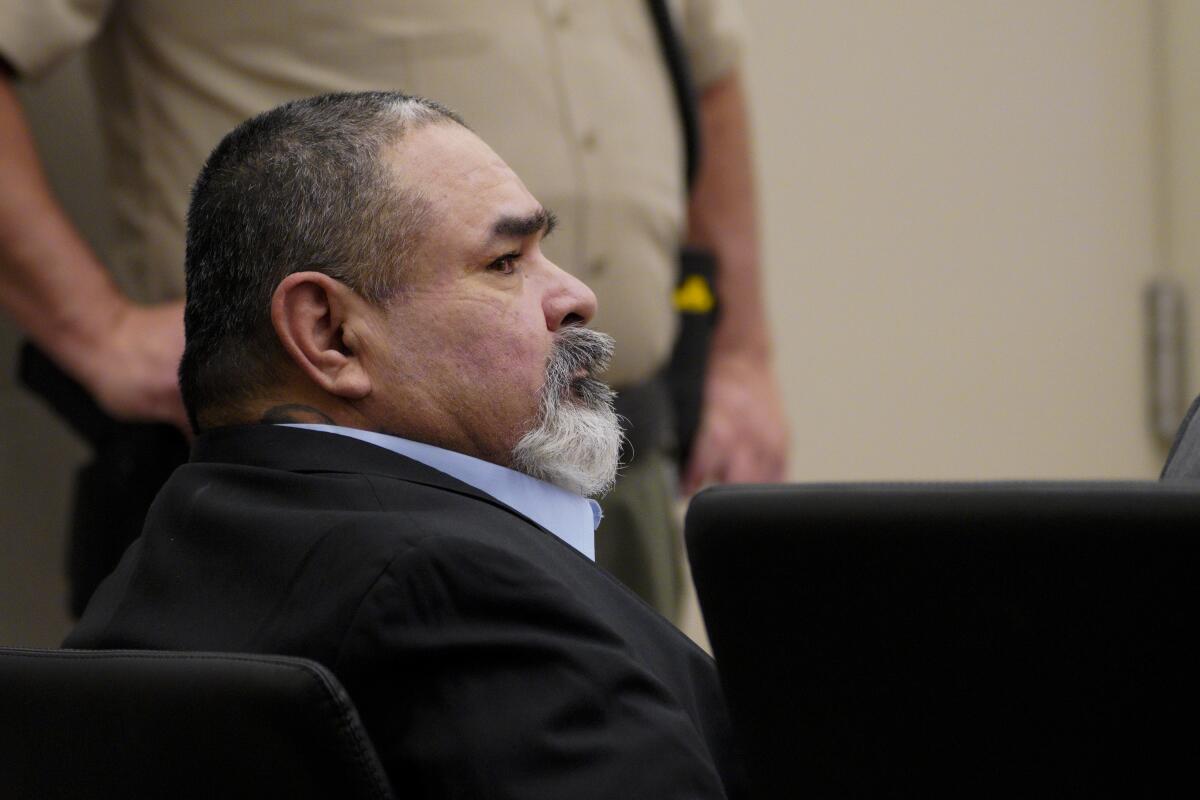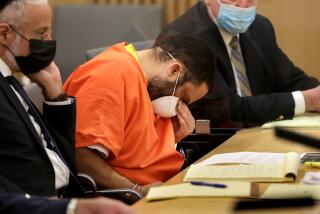Man found guilty of first-degree murder in 2016 shooting of San Diego police officer

- Share via
SAN DIEGO — A 60-year-old man was found guilty Monday of first-degree murder in the 2016 shooting death of San Diego police Officer Jonathan “JD” De Guzman, and attempted murder for shooting De Guzman’s partner in the throat.
A San Diego Superior Court jury found Jesse Michael Gomez guilty on all counts, along with a special-circumstance allegation of murder of a peace officer.
Gomez’s trial will now move to a second phase during which the same jury will hear additional evidence, then weigh whether to recommend that Gomez be executed for the killing or sentenced to life in prison without parole. That phase will start Thursday.
After the verdict, the president of the San Diego Police Officers Assn. issued a statement expressing gratitude for the conviction and sending respect to De Guzman’s family.
“We are pleased that justice has been served,” Jack Schaeffer said. He added that De Guzman “continues to be remembered as a noble officer who was passionate about keeping his community safe.”
De Guzman and Officer Wade Irwin were members of the San Diego Police Department’s gang suppression team and doing one final patrol for the night when a gunman opened fire on them on Acacia Grove Way shortly before 11 p.m. July 28, 2016.
De Guzman, 43, was killed. Irwin was hospitalized for nearly a month.
Jesse Gomez is accused of fatally shooting San Diego police Officer Jonathan “JD” De Guzman and wounding Officer Wade Irwin in 2016
Prosecutors had argued that Gomez was on methamphetamine, carrying an open container of beer and illegally carrying a gun when he shot the officers. According to testimony, the shooting happened after De Guzman spotted Gomez and another man suddenly part ways as the patrol car approached.
Irwin said it struck De Guzman as suspicious, so they made a U-turn and followed Gomez. Irwin got out and approached Gomez. They asked if he lived in the area.
Irwin testified at trial that the man responded by shooting him in the throat and opening fire on De Guzman, who was still in the driver’s seat of the patrol car.
Irwin fell to the ground, his back against the car. He drew his gun and fired across his body at the shooter, who ran off.
The prosecution argued that Gomez opened fire because, as a convicted felon, he would be arrested if the officers found out he was carrying a gun.
Gomez testified in his own defense and said he did not know the people who pulled up behind him in a car on a darkened street were police officers.
He said he thought they were gang members issuing a challenge — asking where a person lives is a common opening salvo — and that he feared he was going to die.
A blood trail led police to Gomez, who was found unconscious in a brushy ravine. On his belt was an empty holster. Near him, a gun and a loaded magazine.
In large part, Gomez’s sentencing fate is in the hands of the jury. If jurors opt for life in prison without parole, the judge cannot sentence Gomez to death.
If the jury chooses execution — and it must be unanimous — it will be up to the judge to decide whether to accept the jury’s recommendation at sentencing. They usually do.
In 2019, Gov. Gavin Newsom signed an executive order putting a moratorium on the death penalty in California.
The order does not preclude prosecutors from seeking capital punishment, but it bars the state from carrying out executions. The order will last as long as he is in office.
Figueroa writes for the San Diego Union-Tribune.
More to Read
Sign up for Essential California
The most important California stories and recommendations in your inbox every morning.
You may occasionally receive promotional content from the Los Angeles Times.














